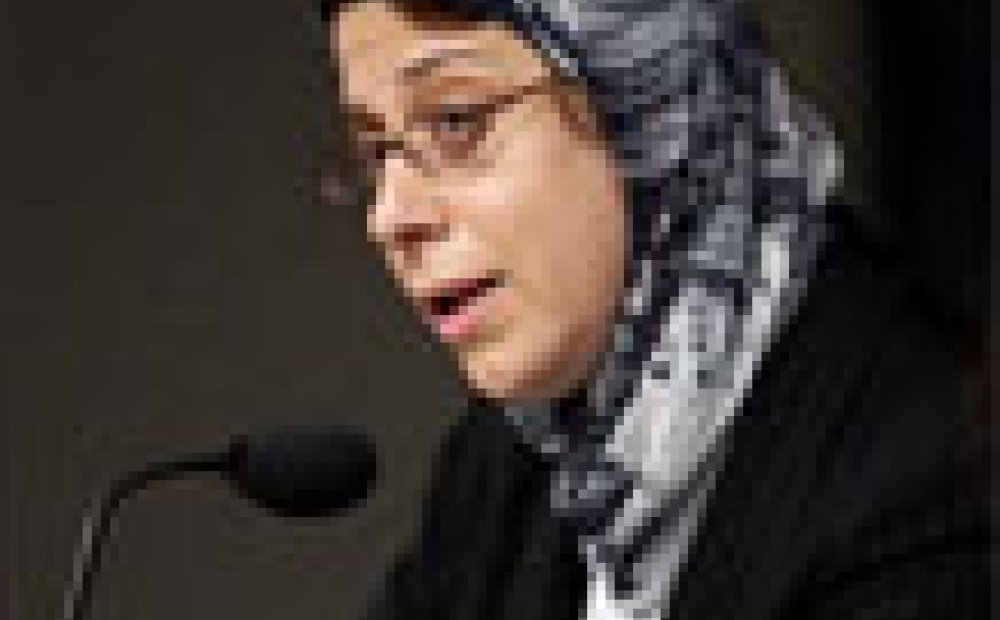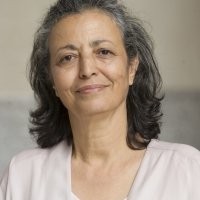Islamic Feminism and Beyond: The New Frontier

Women throughout the Muslim world have been actively leading reform movements and pushing for gender equality since the early 20th century. On June 15, 2010 the Middle East Program of the Woodrow Wilson Center hosted two panel discussions to review the history and examine the progress of women's movements, specifically related to developments in Egypt, Iran, Morocco, Tunisia, and Turkey.
Haleh Esfandiari, Director of the Middle East Program at the Woodrow Wilson Center, moderated the first panel, which focused on citizenship, gender, and representation. Amaney Jamal, Assistant Professor of Political Science at Princeton University, began by discussing the current status of women and the role of personal status codes in the region. Analyzing Morocco, Jamal described the three conditions that brought about some of the most progressive reforms in the Middle East: women activism in civil society, commitment of the monarchy, and international pressure. She identified personal status laws as the biggest challenge to gender equality in the Middle East and North Africa region and recommended that the personal status regime be reformulated to change how women are identified in relation to men.Nayereh Tohidi, Professor of Gender and Women's Studies at California State University, Northridge, spoke on women and representation in Iran. Tohidi discussed the history of the women's reform movement and the issue of patriarchy inherent in the political system as an impediment to gender equality. She indicated that any reform within Islam requires a strong push from women armed with Islamic knowledge and organizing skills to be effective.
Lilia Labidi, Professor of Anthropology and Psychology at the University of Tunis, spoke on the personal status code and women's celibacy in Tunisia. In addition to providing an overview of the country's reform movement, Labidi discussed how the Arab world is confronting demographic changes that challenge tradition with regards to sexuality and marriage. She also showed how states in the region are confronting social movements of a new kind and how diverse groups of women in Tunisia are defending women's rights.
Zainab Al-Suwaij, Executive Director of the American Islamic Congress, moderated the second panel focusing on equality, family, and society. Margot Badran, a Senior Scholar at the Woodrow Wilson Center, drew attention to current
manifestations of exclusivity among some global activists mobilizing Islamic feminism to promote changes in fiqh-backed family laws in Muslim-majority countries. She underscored the necessity for feminist activists to join forces at the global and local levels to affect change in Muslim personal status laws drawing lessons from earlier feminist campaigning in Egypt.
Souad Eddouada, Assistant Professor of English at Ibn Tofail University in Morocco, discussed the reform of the Moroccan Family Code in 2004. Noting the interdependence of politics and religion when determining family law in Morocco, Eddouada pointed out that a combination of secular feminist and Islamic feminist arguments were used to effect change in the Moroccan family law along with political will from on high.
Binnaz Toprak, Professor of Political Science at Bahçesehir University in Istabul, analyzed the role of Turkish secular women's NGOs in changing both the Civil Code in 2001 and the Penal Code in 2004. These groups successfully advocated for the dual headship of the family by female and male spouses, for punishments against honor killings, and for strengthened protection against domestic violence.
By Kate Connelly and Avideh Mayville, Middle East Program
Haleh Esfandiari, Middle East Program
Speakers
Associate Professor, Women's Studies Department, California State University, Northridge

Visiting Research Professor, Middle East Institute, National University of Singapore; Former Minister for Women’s Affairs (January to December 2011), Government of Tunisia

Honorary Fellow, Prince Alwaleed bin Talal Center for Muslim Christian Understanding, Georgetown University
Moderator

Hosted By

Middle East Program
The Wilson Center’s Middle East Program serves as a crucial resource for the policymaking community and beyond, providing analyses and research that helps inform US foreign policymaking, stimulates public debate, and expands knowledge about issues in the wider Middle East and North Africa (MENA) region. Read more
